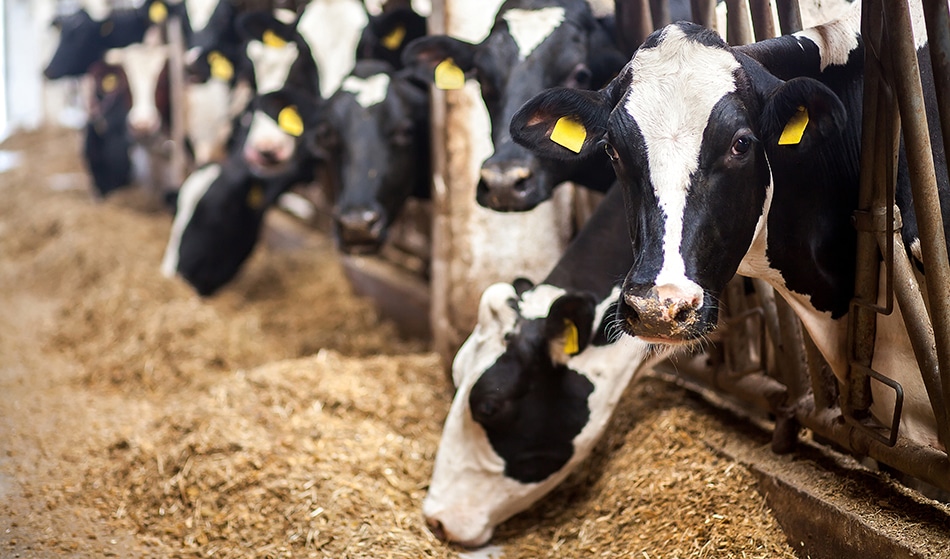EN 15789 Vibrio spp. Detection in Aquaculture Feed
The detection of Vibrio species in aquaculture feed is crucial for ensuring food safety and the health of aquatic animals. The European standard EN 15789 specifies procedures for detecting Vibrio spp., particularly those that are pathogenic to fish, molluscs, and crustaceans. This service plays a pivotal role in safeguarding the integrity of aquaculture operations by preventing contamination from these harmful bacteria.
The prevalence of Vibrio species can significantly impact aquatic ecosystems and farming practices. These organisms thrive in warm water conditions and are known to cause serious infections, including vibriosis. The standard provides a standardized method for detecting these pathogens in feed materials, enabling aquaculture facilities to take preventive measures.
The testing process involves several key steps. Initially, the feed samples are collected from various stages of production. They are then processed and prepared according to the specifications outlined in EN 15789. Following sample preparation, the culture is inoculated into media designed to selectively grow Vibrio spp. This step requires precision to ensure accurate identification.
The growth phase involves incubating the samples under specific conditions that favor the proliferation of Vibrio species while suppressing other microorganisms. After this period, selective isolation techniques are applied to identify and confirm the presence of pathogenic strains. Identification is typically achieved through biochemical tests and possibly molecular methods such as PCR.
The results from these tests provide critical information for quality control departments within aquaculture facilities. By detecting Vibrio spp., they can implement corrective actions, such as adjusting feed formulations or improving production hygiene protocols. This service not only ensures compliance with international standards but also contributes to the overall sustainability of aquatic farming practices.
The importance of this testing cannot be overstated in today's global aquaculture industry. The demand for safe and healthy seafood products continues to grow, driving the need for stringent quality assurance measures. Compliance with EN 15789 helps aquaculture operations maintain their reputation and market access, especially in export markets.
Moreover, this service supports the broader objectives of sustainable aquaculture by minimizing risks associated with contaminated feed. By detecting and eliminating Vibrio spp., facilities can reduce the incidence of disease outbreaks, thereby enhancing animal welfare. This contributes to a more resilient and efficient aquaculture sector.
In summary, the EN 15789 Vibrio spp. detection service is essential for maintaining food safety standards in aquaculture feed production. It ensures that products meet stringent quality requirements set by international regulations, supporting both industry sustainability goals and consumer confidence.
Industry Applications
- Aquaculture feed manufacturers
- Quality control laboratories within aquatic farming facilities
- Regulatory bodies overseeing food safety standards
- R&D departments focusing on sustainable aquaculture practices
- Procurement teams sourcing raw materials for aquaculture operations
Eurolab Advantages
Expertise and Experience: Eurolab boasts a team of highly skilled microbiologists with extensive experience in aquatic food safety testing. Our personnel are trained to adhere strictly to EN 15789 standards, ensuring accurate results.
State-of-the-Art Facilities: We operate in modern laboratories equipped with the latest technology for sample preparation and analysis. This ensures that we can handle a wide range of feed samples effectively.
Comprehensive Reporting: Eurolab provides detailed reports tailored to meet the needs of our clients, including compliance assessments and recommendations for corrective actions. These reports are invaluable tools for quality managers and compliance officers in managing their operations.
Rapid Turnaround Time: Our commitment to efficiency allows us to deliver results quickly, enabling timely interventions if any contamination is detected.
Customer Impact and Satisfaction
The success of our EN 15789 Vibrio spp. detection service lies in the tangible benefits it brings to our customers. By ensuring that feed samples meet stringent safety standards, we help our clients avoid costly recalls and reputational damage. Our detailed reports provide actionable insights, empowering quality managers and compliance officers to make informed decisions.
Our service has been instrumental in enhancing the reputation of several leading aquaculture facilities across Europe. Regulatory bodies have praised our adherence to international standards, further solidifying our position as a trusted partner within the industry.
Customer satisfaction is paramount at Eurolab. We regularly receive positive feedback from quality managers and R&D engineers who rely on our services for critical data in their operations. Our commitment to excellence ensures that we continue to meet and exceed customer expectations.





